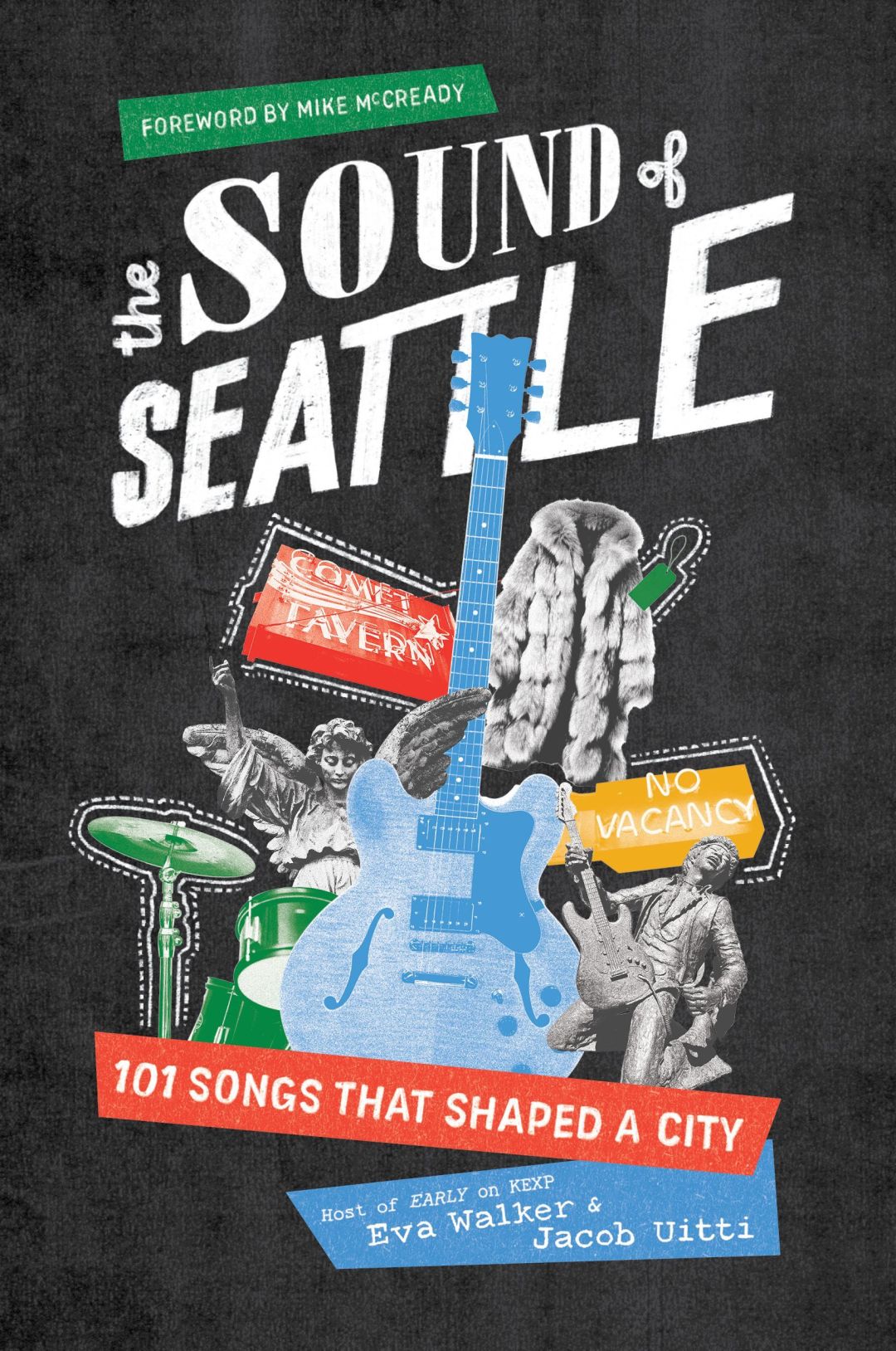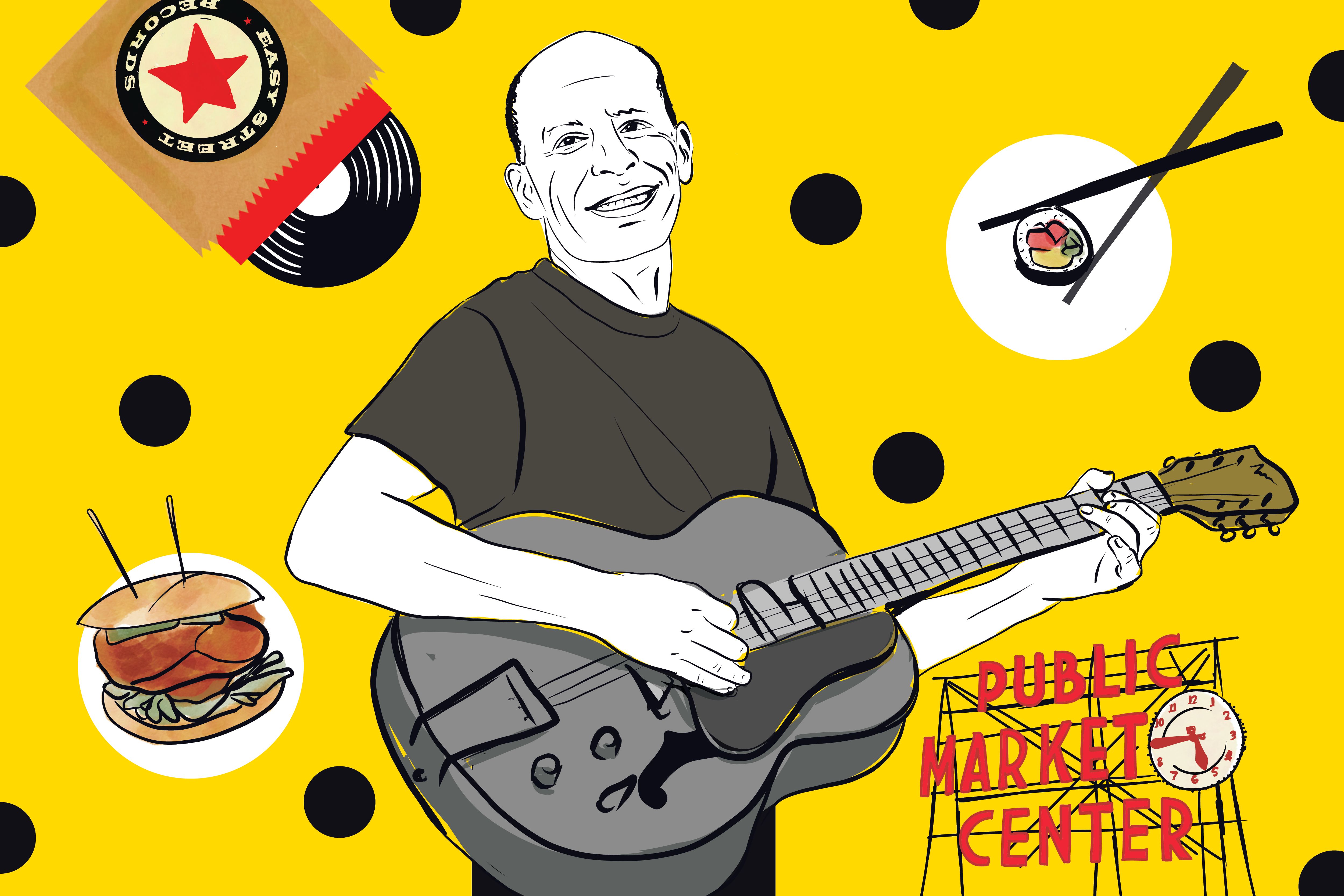Sir Mix-a-Lot Reflects on 1990s Seattle

On August 20, wife and husband duo KEXP DJ Eva Walker and local journalist Jake Uitti released their new book, The Sound of Seattle. Published by Sasquatch Books it dives into the city's music history from Bing Crosby to Ayron Jones (with grunge, rap, and jazz mixed in between), and includes decade-specific essays with local luminaries, from Nancy Wilson to Sir Mix-a-Lot. Below, Sir Mix-a-Lot talks about living in the city in the 1990s as the music landscape was exploding.
When Grammy Award–winning rapper and producer Sir Mix-a-Lot (born Anthony Ray) thinks about 1990s Seattle, he thinks about two music genres happening simultaneously: hip-hop and rock. As the ’90s began, hip-hop was moving from more of a “home brew” sound to something “more polished.” Mix and everyone he was working with at the time, including at his label Nastymix, had to step up their game, he says, since the songs were reaching far beyond the Emerald City bounds.
“I was coming off what I thought was a giant record,” says Mix of his 1988 debut LP, Swass. “And we thought we had arrived!”
Mix’s first album featured his first hit, “Posse on Broadway,” as well as the local favorite, “Buttermilk Biscuits (Keep on Square Dancin’).” His 1989 follow-up, Seminar, was certified gold, with songs like “Beepers” and “My Hooptie.” Mix, however, is quick to note that around this same time, grunge music was also beginning to take off—in a major way. The lyricist knew it. “I felt like, yeah, this is going to overshadow me. And it did!” he says.
Mix, however, wasn’t frustrated that grunge was taking over in the late ’80s and early ’90s. Many of the musicians in the popular bands were his

Image: courtesy Blue Star Press
friends and collaborators. (Indeed, there remains an unreleased Mix and Chris Ballew collab.) “You could stand outside on Broadway and hear people rehearsing,” says Mix. “It was quality band after quality band after quality band. Nobody sounded like shit. Nobody.”
Born August 12, 1963, in Auburn, Washington, Mix grew up in Seattle’s Central District. As a teen, via bussing programs many opposed at the time, Mix attended Roosevelt High School (at the same time as future Guns N’ Roses bassist Duff McKagan). In middle school, Mix had been introduced to the idea of music as a career. He always loved electronics, from CB radios to keyboards, and in high school that crystallized.
As the ’80s unspooled into the ’90s, Mix started to notice the city changing. He was around members of groups like Pearl Jam and he remembers walking down the street and going into clubs and seeing musical giants onstage. At the time, it all felt, well, normal. In 1991, Mix signed with Def American Recordings, which boasted artists like Johnny Cash and ZZ Top, working with famed producer Rick Rubin.
“Then fast-forward to 1993 and we’re all standing at the Grammys,” says Mix. “Literally. Myself, the Presidents, Pearl Jam, everybody. It was that fast. Seattle took over.”
The success of grunge made it a bit harder for hip-hop to be noticed, Mix says. Once 1992 came and went, it was all about sludgy rock. “You’d do a concert for, like, 3,000 people and then Pearl Jam shows up and plays for a stadium! But I wasn’t jealous because all eyes were on Seattle.”
In 1993, it was Mix’s turn. While he recognizes he may not be the best rapper who ever lived—in Seattle, he credits the Emerald Street Boys, who came up before him, with that title—his unique combination of talent and style paid off that year. “Let’s be honest,” Mix says, “if the Emerald Street Boys came along around my time, as polished as they were, I’d have been sweeping up after them. That’s how good they were.”
Yet as the ’90s progressed, rap grew and grew. Mix earned a Grammy in 1993 for his single, “Baby Got Back.” The song also hit No. 1 on the Billboard charts. He’d arrived. But he says that wasn’t the song that the locals liked most. Those in Seattle liked “Posse on Broadway,” “My Hooptie,” and “Beepers” best. But as long as the people liked something, he says, and made sure to treat him like a human being, he was happy.
“Everybody was humble, thankfully,” Mix says. “I could walk down the street and maybe somebody would buy me a Dick’s burger. But there was no ass-kissing, which is what I like. Ass-kissing is very uncomfortable.”
Today, what makes the city so unique for Mix is its location (read: isolation). He says the city and its residents historically had to come up with their own things to do. Their own fun. Their own music. That gave the region a unique sound and perspective. Seattle wasn’t like anyplace else because it wasn’t influenced by any place else. What Mix saw was a lot of people making art in odd, makeshift places. Working on stuff that was taboo. Not the glam stuff of the LA ’80s.
“Grunge was not that,” says Mix, famous for his signature cowboy hat. “It was like, ‘I got some god-damn jeans on. I have an old guitar that I got when I was broke and I’m still playing it.’ That was the beauty of it to me.”




